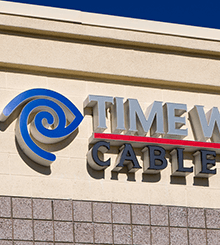
8 Modern Business Trends and Opportunities to Capitalise On
Coronavirus has currently put many businesses on hold so far in 2020, however looking towards the rest of the decade, there are several trends that are taking hold, changing the landscape that entrepreneurs rely on. For those who stay current, these developments will offer opportunities to establish expertise in your chosen industry and stand out amongst the crowd.
1. The Use of Artificial Intelligence
While artificial intelligence came to be in 1956, it wasn’t until recently that it started making an appearance in business. Today’s companies can use the technology to complete human-like activities, including learning, planning and problem-solving.
As data security becomes a top priority, businesses can use AI to look for holes in computer network defenses. This technology will also transform customer relationship management, allowing companies to maintain interactions — answering questions, scheduling appointments, sending out reminders, etc. — without the need for human workers.
2. A Need for Personalised Experiences
Today’s consumers don’t want to feel like a number. Instead, they crave personalised experiences that match their specific needs. Through the use of data, businesses can remember who customers are, how they prefer to shop and offer up recommendations on what products or services Ïthey might like.
If you want to boost profits going forward, don’t look past this trend. People are more likely to impulse-buy — and spend more than initially planned — due to personalised service. Plus, 44% of shoppers say they’re more likely to return after this type of experience with a company.
3. A New Take on Drone Technology
You may consider flying drones to be strictly recreational, but these machines will have a significant impact on the future of business. Drones can complete many tasks — from mapping to surveillance — faster and more reliably than a human worker. Many sporting and entertainment venues already employ them to watch over crowds.
Beyond their camera capabilities, these devices can also carry and deliver products. UPS, Amazon and Google, for instance, are spearheading the campaign to increase delivery speeds, expand travel radiuses and enhance convenience with this technology. UPS has already conducted 1,500 commercial flights focusing on health care needs.
4. A Demand for Sustainability
Today’s shoppers are eco-conscious and ever-aware of the impact consumerism has on the planet. As a result, businesses need to adopt green initiatives. Starting at the inception of a building, sustainable materials, such as concrete, can reduce energy costs and minimise waste.
Companies that use eco-friendly materials — like NGBS Green Certified Products — can help reduce the carbon footprint of the construction process. After production, these items also prevent the transfer of heat and moisture through structures, improving indoor air quality and benefiting employee health.
5. An Uptick in Mobile Convenience
Mobile technology has increased convenience for shoppers and businesses alike. In the world of marketing, it’s now possible to offer up exclusive discounts and deals to consumers within a certain radius of your (or a competitor’s) location. Tap-and-pay technology also makes carrying cash and cards a thing of the past.
When it comes to the backend, mobile allows the workforce to communicate seamlessly across platforms. With the increase in apps and cloud-based tools, companies can focus on eliminating tedious paperwork and enabling employees to complete tasks on-the-go.
6. A Rise in the Gig Economy
In the United States, around 36% of workers are involved in the gig economy, a sector that consists of independent contractors and freelancers who complete flexible jobs. As a result, businesses can overcome one of their biggest challenges — hiring reliable employees.
Location no longer restricts who companies can hire, allowing them to choose from a broader pool of talent. Businesses can focus on acquiring workers who offer high levels of expertise and creativity. This shift also allows operations to scale more quickly, bringing in new faces from across the globe.
7. The Complete Takeover of Voice
The 2010s saw a rise in mobile, with people completing search queries on-the-go and seeking instant answers. In 2020 and beyond, however, the name of the game is voice. As of 2018, 66.4 million people in the U.S. own smart speakers, which is more than one-quarter of the population.
Due to this trend, businesses must create online content that is voice-optimised, as people speak differently than they type. Companies can take advantage of this opportunity by becoming experts in the voice search sector while the change is relatively new.
8. A Chance to Use Peer Groups
While technologies like AI, mobile and voice search abound, businesses need to connect to consumers on a community-based level. Thankfully, this is possible through the use of peer groups, where entrepreneurs can meet up to gain honest and insightful feedback on ideas and plans.
The primary goal of these groups is to find answers to an issue, including discovering other methods people used to solve a problem and studying the results they generated. Above all else, confidentiality is essential. Without trust, the relationships formed in these groups are useless.
Modern Business Trends to Consider in 2020 and Beyond
Trends come and go, but that doesn’t mean you have to get left behind. From artificial intelligence to the gig economy, consider some of the crucial developments above and how they can benefit your business.




















